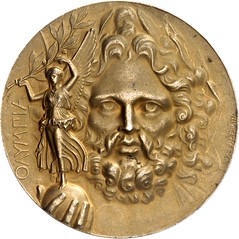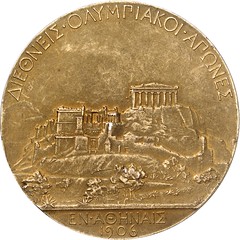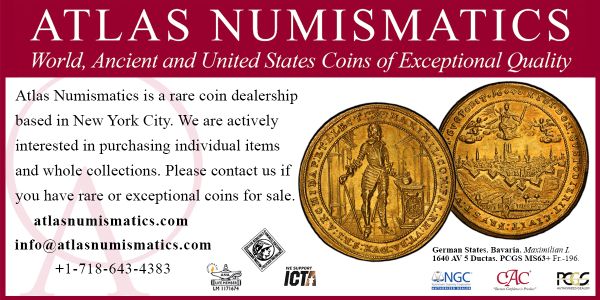
PREV ARTICLE
NEXT ARTICLE
FULL ISSUE
PREV FULL ISSUE
THE OLYMPIC GAMES THAT AREN'T RECOGNIZEDThis article from the Künker auction house discusses some little-known Olympic history - a medal from Olympic games held but no longer recognizes. -Editor In 1906, the IOC and the country of Greece invited athletes from all over the world to the Olympic Games in Athens. The Games had a lasting impact on the ceremonies surrounding the sporting showdown, even though the IOC no longer recognizes these Olympics today. A winner's medal from the Games will be auctioned by Künker on 18 June 2024. On 18 June 2024, the Künker auction house in Osnabrück will offer a ‘gold' medal from the 1906 Olympics in Athens, of which probably only 78 specimens were produced. As was customary at the time, the medal is of course not made of pure gold, but gilded silver. Interestingly enough, the 1906 Olympics do not appear on the IOC's list of Games. We explain why these Olympic Games are no longer recognized as such. Rome was to host the Games in 1908, but the Italian organizing committee was dissolved in January 1906. Therefore, the Olympic idea was almost dead when the Greek government announced its plans to hold the Olympic Games in 1906, following Coubertin's proposal of two types of alternate games. The IOC recognized the opportunity of such games and wholeheartedly supported Greece in this effort – except for Pierre de Coubertin. It seems that the latter was more interested in getting his way than in turning the Olympic idea into a success story. With the 1906 Olympics, Greece wanted to continue the tradition of the highly successful first Olympics. This was also reflected by the medals, which were produced by the Monnaie de Paris. Every detail of these medals is the same as on those for the first Olympic Games. On the obverse we can see the head of Zeus Olympios, holding a Nike on a globe in his right hand. The reverse presents a view of the Acropolis seen from the Panathenaic Stadium. Only the year on the reverse was adapted, otherwise the legend is identical to that of 1896: International Olympic Games in Athens 1906 (translated). A gold, a silver and a bronze medal were created for each of the 78 competitions. Like the piece offered by Künker, the gold medals were not made of pure gold but of gilded silver. The 1906 Olympics became a great success: 900,000 fans cheered on 854 athletes from 20 countries on four continents. For comparison: there were ‘only' 241 athletes at the 1896 Games. In fact, it can be said that it was the 1906 Games that really kick-started the Olympic movement. It was only after this great success that the British Olympic Association decided in the autumn of 1906 to take over the organization of the 1908 Olympics.
To read the complete article, see:
Wayne Homren, Editor The Numismatic Bibliomania Society is a non-profit organization promoting numismatic literature. See our web site at coinbooks.org. To submit items for publication in The E-Sylum, write to the Editor at this address: whomren@gmail.com To subscribe go to: https://my.binhost.com/lists/listinfo/esylum All Rights Reserved. NBS Home Page Contact the NBS webmaster 
|


